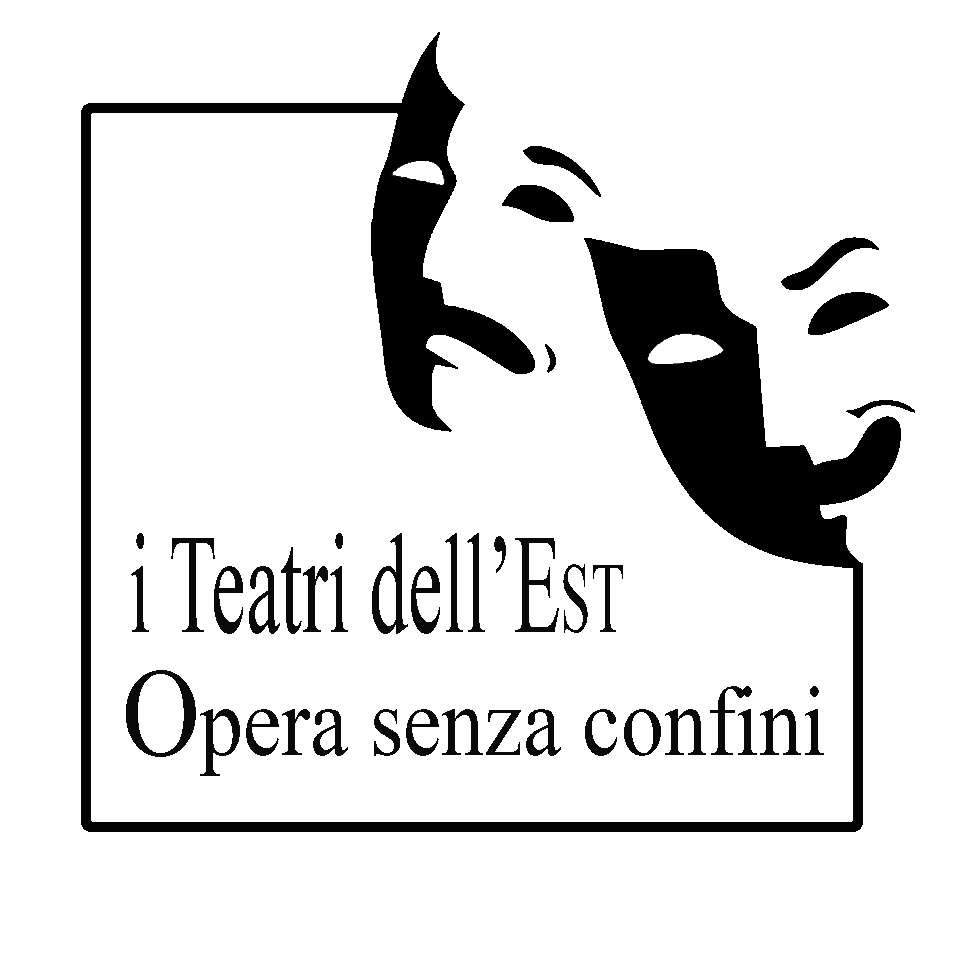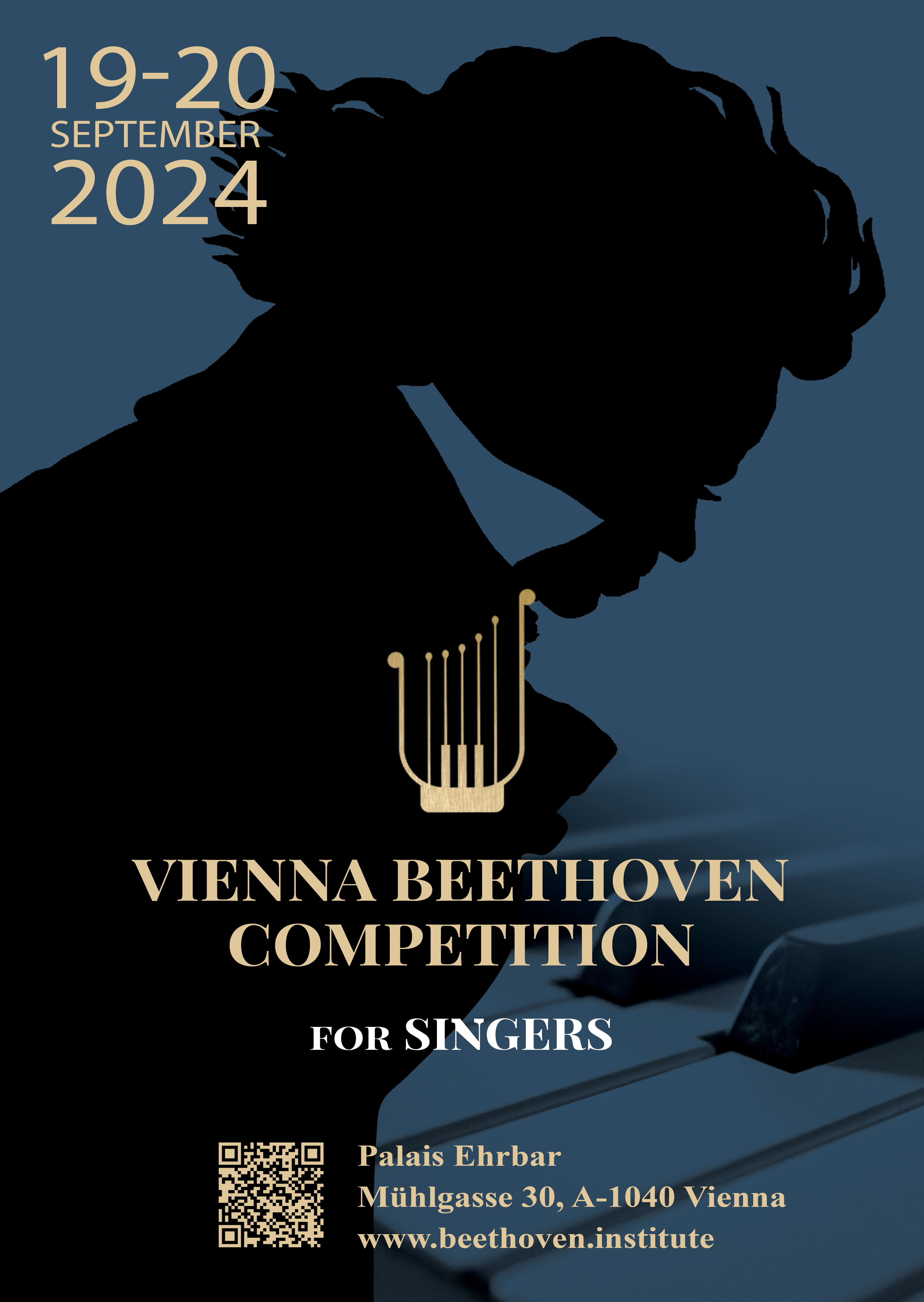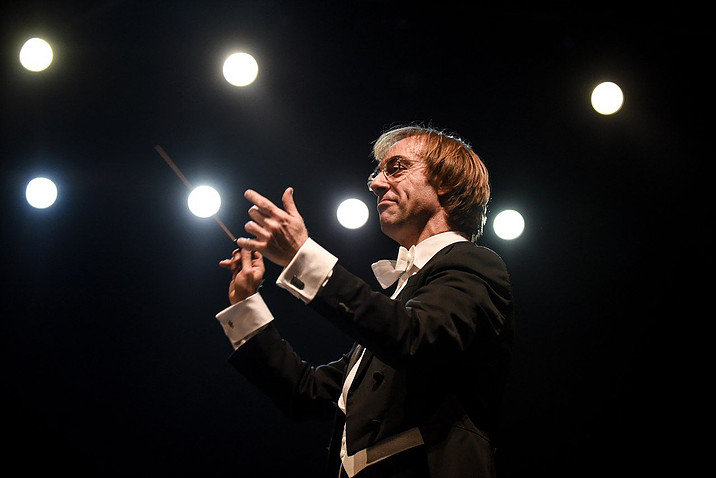Music as a choice – Interview with conductor Fabio Mastrangelo

It is an exciting thing to listen to the stories of the musicians… Like once, long time ago musicians were a peculiar “race”: drifting from kingdom to kingdom… Palace to village… Delighting the hearts of rich or poor, King or pauper… Not much has changed in our modern global world: they are still drifting, to most unexpected places, changing their own and many other people’s lives with the collection of sounds: unrepeatable mascarade of performance, untouchable beauty of music!
Recently I met an interesting person, one of the most requested conductors, Fabio Mastrangelo – an Italian, from the south, who found his home far north… In Saint Petersburg! …leading Russia’s some of the most important orchestras, on his way to formation (or re-formation) of a new theatre! …at the same time, traveling and performing all around the world at some of the most exciting venues of the modern music community.
Due to upcoming events, our starting point was the new orchestra and theatre in Saint Petersburg…
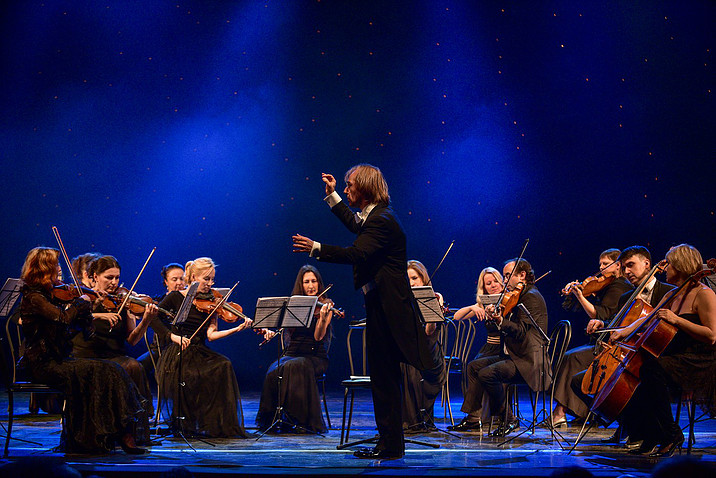
- In a few days “northern sinfonia” is opening its season. What is the story behind this orchestra?
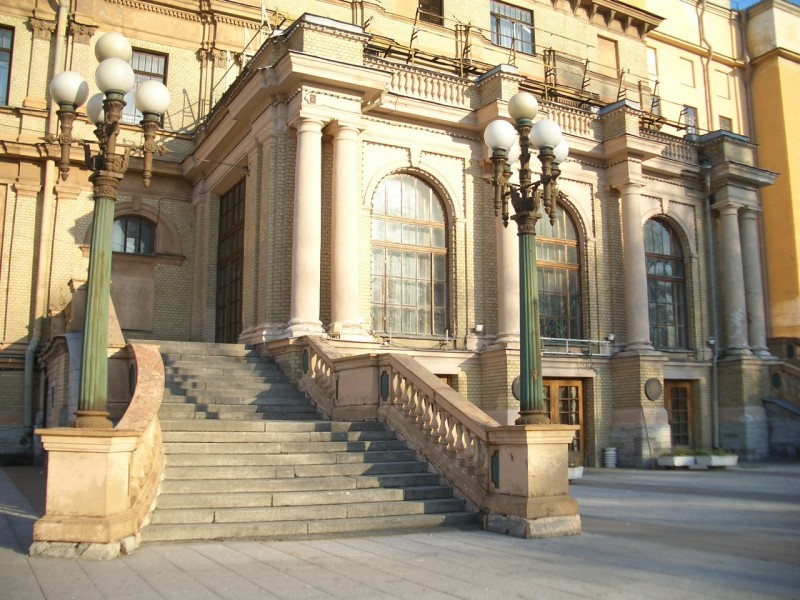 You could say that the St. Petersburg Northern Sinfonia is the youngest among my creatures. However, we do have an enviable pedigree. About 25 years ago, Maestro Saulius Sondeckis, a true gentleman of the podium, created a youth orchestra, the St. Petersburg Camerata, which then went on to become the only musical ensemble in the world completely connected with a museum – the world famous Hermitage!
You could say that the St. Petersburg Northern Sinfonia is the youngest among my creatures. However, we do have an enviable pedigree. About 25 years ago, Maestro Saulius Sondeckis, a true gentleman of the podium, created a youth orchestra, the St. Petersburg Camerata, which then went on to become the only musical ensemble in the world completely connected with a museum – the world famous Hermitage!
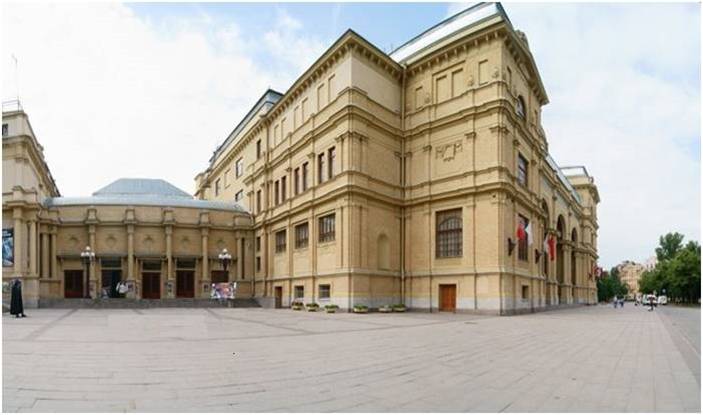 About ten years ago, I was named Artistic Director and Principal Conductor of the State Hermitage Orchestra, the name that Camerata had in the meantime taken on. In the late Summer of 2013, Georgy Poltavchenko, to this day Governor of St. Petersburg, appointed me Artistic Director of a wonderful house, the “St. Petersburg State Theatre Music Hall”. As soon as I took up this position, together with the also newly appointed Director, Julia Strizhak, the city administration asked us to come up with a plan for the long-term artistic development of the theatre which had just been entrusted to us. We created a very in-depth document (about 140 pages!) in which we described the way we envisioned the future of our theatre. I hope we may get another chance to talk more extensively about this because it is indeed a very intriguing story. However, to make a long story short, one of the points of that plan was the creation of a symphony orchestra within the theatre which would help us fulfill our artistic projects of staging both operas and ballets, as well as performing symphonic concerts and lot more. Because of financial reasons, we initially created a 24-members chamber orchestra which we named Northern Sinfonietta. By that point, most of the players belonging to the Hermitage orchestra had decided to audition for the new one and, by large, they showed themselves the strongest among contestants. In May 2016, not too long ago, having received the appropriate financing, we held a second set of auditions and our sinfonietta grew to a 70-members symphony orchestra which we consequently named Northern Sinfonia. Despite our “young” age, have already performed a lot together and not only symphonic music. I am particularly proud to say that between June 7 and July 23, we performed four operas: Tchaikovsky’s Onegin and Iolanta, Borodin’s Prince Igor and Mozart’s Le Nozze di Figaro. This September 28, we will open the first official season in the history of our orchestra with a wonderful program celebrating Russian composers Prokofiev and Rachmaninov.
About ten years ago, I was named Artistic Director and Principal Conductor of the State Hermitage Orchestra, the name that Camerata had in the meantime taken on. In the late Summer of 2013, Georgy Poltavchenko, to this day Governor of St. Petersburg, appointed me Artistic Director of a wonderful house, the “St. Petersburg State Theatre Music Hall”. As soon as I took up this position, together with the also newly appointed Director, Julia Strizhak, the city administration asked us to come up with a plan for the long-term artistic development of the theatre which had just been entrusted to us. We created a very in-depth document (about 140 pages!) in which we described the way we envisioned the future of our theatre. I hope we may get another chance to talk more extensively about this because it is indeed a very intriguing story. However, to make a long story short, one of the points of that plan was the creation of a symphony orchestra within the theatre which would help us fulfill our artistic projects of staging both operas and ballets, as well as performing symphonic concerts and lot more. Because of financial reasons, we initially created a 24-members chamber orchestra which we named Northern Sinfonietta. By that point, most of the players belonging to the Hermitage orchestra had decided to audition for the new one and, by large, they showed themselves the strongest among contestants. In May 2016, not too long ago, having received the appropriate financing, we held a second set of auditions and our sinfonietta grew to a 70-members symphony orchestra which we consequently named Northern Sinfonia. Despite our “young” age, have already performed a lot together and not only symphonic music. I am particularly proud to say that between June 7 and July 23, we performed four operas: Tchaikovsky’s Onegin and Iolanta, Borodin’s Prince Igor and Mozart’s Le Nozze di Figaro. This September 28, we will open the first official season in the history of our orchestra with a wonderful program celebrating Russian composers Prokofiev and Rachmaninov.
- Tell us more about the concert…
The program will feature guest pianist Ekaterina Mechetina, one of the brightest stars in Russia and abroad, with whom I’ve often shared the stage. She is a true virtuoso with a romantic heart! She will be performing with us Rachmaninov’s Variations on a theme by Paganini. The program is completed by Prokofiev’s 1st (“Classical”) Symphony, two suites from his ballet Romeo and Juliet.
- Let’s go back to the event that took place this summer in Montecatini. The Northern Sinfonia had a great success in Italy!
Yes, indeed we enjoyed a significant success in our recent tour of Italy. We only played two dates, in Padua and Montecatini Terme, but our concerts had a lot of resonance. I would like to spend a few more words about our appearance in Montecatini. This was in fact, our third season there. In 2014, the local opera festival has been re-named “St. Petersburg – Montecatini” and our theatre has been collaborating since, presenting concerts of Russian and Italian music. This year’s program included large selections from Tchaikovsky’s Pique Dame and Puccini’s Tosca.
- The “Music Hall” is going to be closed soon for renovations, what will the creative team do in the meanwhile?
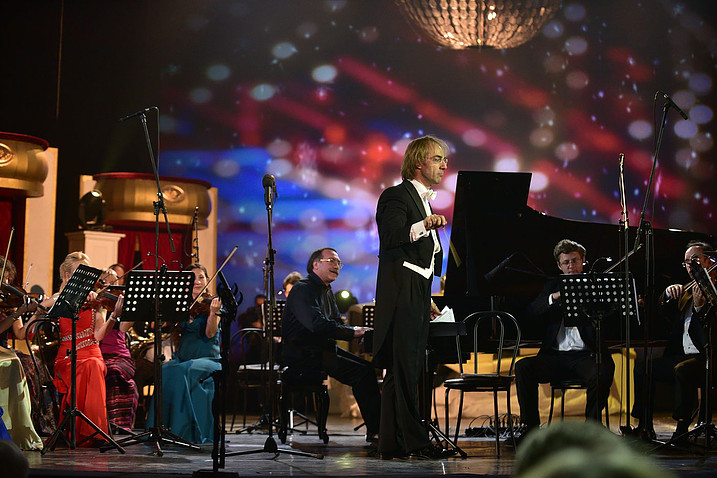 Yes, our theatre is soon to be closed for major reconstructions. While the exterior of the theatre will remain virtually untouched, our main stage and hall, as well as our secondary scene (a 250-seats facility) will get completely re-styled. We will acquire brand new, state-of-the-art theatrical machinery, naturally enhance the acoustics of both halls, and regain access to the beautiful cupola which dominates our main hall (which got unfortunately obstructed in a senseless reconstruction in the 70s, during the soviet era). Incidentally, a comprehensive reconstruction was among the crucial points in our plan for the future of the theatre. The reconstruction is planned to start at the beginning of 2018. Of course, we are getting ready to that moment, and already secured access to a beautiful historical building in the city’s centre where we will move our administration and the newly formed orchestra. This building has a space which could be easily turned into a concert hall with a European flare. At the same time, to avoid stopping our “show repertoire”, we will be guest performers in different city spaces. It will not be comfortable, but it is the price we are willing to pay in order to get a brand new theatre.
Yes, our theatre is soon to be closed for major reconstructions. While the exterior of the theatre will remain virtually untouched, our main stage and hall, as well as our secondary scene (a 250-seats facility) will get completely re-styled. We will acquire brand new, state-of-the-art theatrical machinery, naturally enhance the acoustics of both halls, and regain access to the beautiful cupola which dominates our main hall (which got unfortunately obstructed in a senseless reconstruction in the 70s, during the soviet era). Incidentally, a comprehensive reconstruction was among the crucial points in our plan for the future of the theatre. The reconstruction is planned to start at the beginning of 2018. Of course, we are getting ready to that moment, and already secured access to a beautiful historical building in the city’s centre where we will move our administration and the newly formed orchestra. This building has a space which could be easily turned into a concert hall with a European flare. At the same time, to avoid stopping our “show repertoire”, we will be guest performers in different city spaces. It will not be comfortable, but it is the price we are willing to pay in order to get a brand new theatre.
- And what is your vision of the “new” theatre?
 I am convinced that nothing “new” can happen without a close connection to the past! Our theatre was built in the early 1900s and was then named “Narodny Dom Imperatora Nikolaya II” (People’s Dome of the Emperor Nikolay the 2nd). The great Feodor Chaliapin was a permanent soloist of that theatre and debuted there all the roles which made him famous in the world. He even staged a couple of opera as a director himself. He was absolutely in love with “his” theatre and would often praise its unrivalled acoustics in interviews allover the world. Well, our vision is in many ways a return to the past… with contemporary technology! We definitely want to restitute to our main hall, which has a capacity of 1500 seats, the acoustics which made it famous and, at least partially, bring back its original name. Following a St. Petersburg’s trend (some of the best known theatres in the city are the Mariinsky, Mikhailovsky…Aleksandrinsky) we are discussing renaming the theatre “Nikolaevsky” to pay a tribute to the last Russian Tsar, who initiated its construction.
I am convinced that nothing “new” can happen without a close connection to the past! Our theatre was built in the early 1900s and was then named “Narodny Dom Imperatora Nikolaya II” (People’s Dome of the Emperor Nikolay the 2nd). The great Feodor Chaliapin was a permanent soloist of that theatre and debuted there all the roles which made him famous in the world. He even staged a couple of opera as a director himself. He was absolutely in love with “his” theatre and would often praise its unrivalled acoustics in interviews allover the world. Well, our vision is in many ways a return to the past… with contemporary technology! We definitely want to restitute to our main hall, which has a capacity of 1500 seats, the acoustics which made it famous and, at least partially, bring back its original name. Following a St. Petersburg’s trend (some of the best known theatres in the city are the Mariinsky, Mikhailovsky…Aleksandrinsky) we are discussing renaming the theatre “Nikolaevsky” to pay a tribute to the last Russian Tsar, who initiated its construction.
- I see, that most of your plans and ideas are related to Russia… You are living more than 20 years abroad, how come an Italian conductor with an important international career found his home in Russia?
Actually, it’s already 25 years since I no longer live in Italy. In part, I hold my father responsible for this: he often encouraged me to go live abroad. And, seemingly, I took him seriously. I have studied in Geneva, London, Vienna, Toronto, and, in the last 15 years, have been living in St. Petersburg. I think that for any serious conductor, enriching his own life and professional experience is a MUST. Besides, Russia is one of the most musical countries in the world, a real heaven for a musician!
- Do you “feel at home” performing Russian music?
Absolutely yes! I speak Russian fluently and apart from having loved Russian music first as a pianist and then as a conductor, during these 15 years I have gained first-hand experience. So, in many ways, I feel entitled to perform music written by Russian composers.
- What about your musical “home”: do you prefer performing opera or symphonic repertoire?
I feel at home both in symphonic and operatic repertoire and I am very grateful that I have been granted the possibility of performing so many operas and such an extensive symphonic repertoire. Obviously, I am not planning to stop acquiring new pieces in my repertoire. There are much to be explored still…
- What about you pianistic past? Do you still see yourself returning as a pianist?
Piano is my first love and will never be forgotten! Anytime I get a chance, I jump to a piano and play as much as I can. Returning to a full-scale piano career is at this point unrealistic because my conducting engagements would not allow me to do so. I am too much of a perfectionist when it comes to piano playing and this means – time, lots of time on the instrument! I would however love to come back to the stage with some chamber music programs or alongside with singers for recitals.
- Next month, you will present a new production of Tosca in Slovakia; you perform very often this opera. Is it your personal favorite?
Although, I am usually falling in love with each opera I perform at the time, I must say, that Tosca is one of all-time favourites! It is simply perfect in its balance of both – musical and dramatic elements.
- How is your experience working in Banska Bystrica?
This is my first experience in Slovakia. I must say that I found a very enjoyable and positive work atmosphere. Very well prepared soloists, an excellent choir, a good orchestra and a wonderful artistic director, Šimon Svitok, who is also himself a very accomplished baritone (and will interpret Scarpia). I guess I couldn’t wish for more!
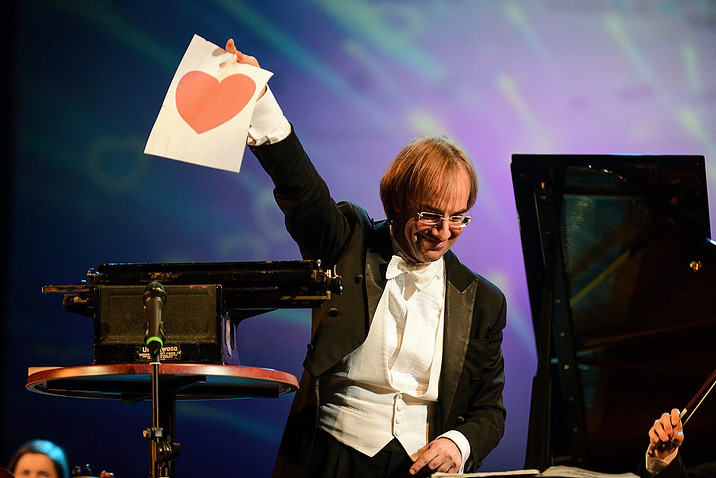
- We will also see you soon in Austria: Linz and Vienna with concerts. Both Wiener Musikverein and Linzer Brucknerhaus are most prestigious venues in Austria. Tell us more about those events…
I have to admit that performing in these halls is a conductor’s dream! Two of the most prestigious concert halls in the whole world! The engagement in Linz came about as a direct consequence of my involvement with the 2016 edition of the “Competizione dell’Opera”. This year, the competition will be held at the Bolshoy Theatre in Moscow and, on the October 2nd, I will conduct the final Gala-concert there. The same program will be repeated in Linz at the Brucknerhaus on the October 6th.
The engagement in Vienna is a unique event in which Italian pianist Emilio Aversano will perform four piano concertos! I will be accompanying him with one of Hungary’s best known orchestras, Budapest’s MAV Symphony. The program includes both Schumann’s Piano Concerto and Tchaikonsky’s 1st.
- What about your homeland? You are not coming very often in Italy, only few prestigious places like Arena di Verona or Torre Del Lago… I’ve seen this year, you had significant success in Verona with your “La Traviata”, gaining one of the highest voting rate among press evaluation…
 That’s true. I am not as often, as I would like to be in Italy. This is mainly due to the fact that my activity in Russia is extremely intense. Beside being Artistic Director of the Music Hall in St. Petersburg and Music Director of its Northern Sinfonia, I am Principal Conductor of the Jakutsk Philharmonic Orchestra, and Principal Guest of two of the most prestigious Russian orchestras: the Novosibirsk Philharmonic, and Moscow’s “Russian Philharmonic”. In addition, I am in my tenth season as Artistic Director of the chamber orchestra “Novosibirsk Camerata”. In 2012, I became Music Director of the only (so far!) Open-Air Opera Festival in Russia, which I also helped founding, and two years ago, I accepted the same position for a Summer Festival in Togliatti. Add to these permanent positions a significant number of guest conducting engagements and you will get an idea of how busy a conductor can be in Russia alone! At the same time, my European engagements have also been growing, Denmark, Germany, Austria, Switzerland, Czech Republic, Serbia….
That’s true. I am not as often, as I would like to be in Italy. This is mainly due to the fact that my activity in Russia is extremely intense. Beside being Artistic Director of the Music Hall in St. Petersburg and Music Director of its Northern Sinfonia, I am Principal Conductor of the Jakutsk Philharmonic Orchestra, and Principal Guest of two of the most prestigious Russian orchestras: the Novosibirsk Philharmonic, and Moscow’s “Russian Philharmonic”. In addition, I am in my tenth season as Artistic Director of the chamber orchestra “Novosibirsk Camerata”. In 2012, I became Music Director of the only (so far!) Open-Air Opera Festival in Russia, which I also helped founding, and two years ago, I accepted the same position for a Summer Festival in Togliatti. Add to these permanent positions a significant number of guest conducting engagements and you will get an idea of how busy a conductor can be in Russia alone! At the same time, my European engagements have also been growing, Denmark, Germany, Austria, Switzerland, Czech Republic, Serbia….
One of Italy’s biggest practical problems is that most of its musical institutions work with too little advance notice. For this reason, especially when you have to commit large portion of your working time to permanent engagements, which are firmed up at least one year in advance, it becomes really difficult to find sufficient time for an opera production in Italy, where they may call you with a three months notice. However, this summer, both of my Italian appearances were extremely successful. La Bohème, in Torre del Lago, and La Traviata in Verona. The Puccini Festival, in a very professional, “non-Italian” way, has already formalized an invitation for the next summer. In Verona I was very happy to receive a most appreciative attention and esteem from the press.
- What is the main challenge in conducting at the Arena? Not every conductor, even famous ones, are prepared to show their best in this very particular venue…
The Arena is definitely a very peculiar “theatre”. Indeed it is not easy to perform there both for conductors and for singers. Its main challenge is directly connected with the enormous distances between stage and orchestra pit. Also, managing an orchestra in which the string section alone counts more than 80 players and a choir consisting of 160 singers, is not the easiest thing in the world. To all this, add the emotional factor of performing in front of 12 thousand people… and you get a very exciting, but somewhat explosive mixture!
- What about Torre Del Lago? …it is also open air.
 Torre del Lago with its almost 4 thousand seats compared to the Arena is almost a “chamber open-air theatre”! Distances there are not such a big issue. Musically and “technically” it is much more manageable then the Arena. The biggest problem in Torre del Lago is the humidity which can really disturb the performances. On the other hand, the location is simply fantastic and, since Puccini himself desired so much to create that festival, it is an incredible honor to perform there. So far, I have conducted Tosca and La Bohème there. For the 2017 edition we are thinking about either Turandot or La Rondine.
Torre del Lago with its almost 4 thousand seats compared to the Arena is almost a “chamber open-air theatre”! Distances there are not such a big issue. Musically and “technically” it is much more manageable then the Arena. The biggest problem in Torre del Lago is the humidity which can really disturb the performances. On the other hand, the location is simply fantastic and, since Puccini himself desired so much to create that festival, it is an incredible honor to perform there. So far, I have conducted Tosca and La Bohème there. For the 2017 edition we are thinking about either Turandot or La Rondine.
- What about your “non-performing” activities? I’ve heard, you will be in the jury of the operatic competition…
Yes, I will spend almost a week in Italy at the beginning of November. The occasion is a masterclass and a competition in Montagnana, in the Veneto region, where I will serve as the President of the jury. My dear friend and excellent tenor, Cristian Ricci established the “Martinelli-Pertile Competition” in 2003. From his competitions many young singers entered into a serious career. Cristian is raising few bright talents and his master classes and competitions attracts great amount of promising singers from all over the world. This summer, Cristian performed Alfredo at the Arena di Verona with me and we agreed that I would be a jury member in his competition. Cristian has definitely his way of persuading people so, in the meantime, he has convinced me to spend an extra 3 days in Montagnana, to share my experience with a number of young singers at the master-class too.
- Do you think competitions are useful for young musicians? …or maybe they just create a lot of stress?
Competitions are a lot of stress, no doubt! However, they can also be extremely useful. Obviously, they tend to be more useful if you win them! But seriously speaking, competitions give us a chance to understand where we stand in comparison to our colleagues. I think this is their most important function. On the other hand, we should never forget that the jury consists of human beings. And human beings, notoriously, make mistakes. So any jury’s decision is not THE only decision possible but only ONE of the possible decisions. The degree of concentration while evaluating the competitors, the juror’s mood and too many other variables can potentially influence a jury’s vote. So, in other words, luck can also play a very important role.
- You have passed long and not the easiest way from an excellent musicianship to an important international career. What would be your advice to young colleagues?
In times of despair, which will definitely happen, ask yourself one simple question: “do I really love music?” If the answer is yes, you have no other choice than picking yourself up and going ahead.
Madi Serebryakova
